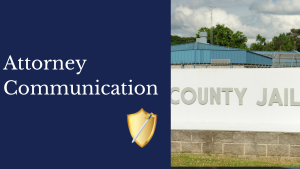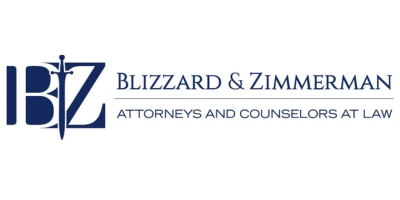
Navigating the complexities of a criminal case can be overwhelming, especially when you’re unsure about attorney communication and when you should expect to hear from your attorney. Here we aim to clarify the communication timeline you can expect from your legal counsel, from the moment of your arrest to the resolution of your case.
The Duty of Candor
A lawyer’s duty of candor (the quality of being honest and telling the truth) is a crucial aspect of the attorney-client relationship. However, this duty does not mean that your attorney must update you on every single minor development in your case. The duty of candor is flexible and allows your lawyer to provide you with more efficient and cost-effective services.
What is an Attorney’s Primary Responsibility?
Your lawyer’s primary responsibility is to exercise good judgment in determining what information to communicate and when it is appropriate to do so.
Here are some key stages in the legal timeline where attorney communication is essential. In criminal cases, it is best to seek out board certified criminal defense attorneys who are specialists who have skilled experience in the preparation and trial of serious criminal matters.
- Initial Consultation
After your arrest, one of the first points of contact with your attorney will be the initial confidential consultation. Here at Blizzard and Zimmerman Attorneys we do charge for criminal consultations as during this hour long meeting, the lawyer will gather essential information about your case and discuss what they believe should be your next step and outline how they would defend you.
Then if the attorney is able to take you on as a client, and you sign a retainer, this then starts their legal representation of you and your defense. - Pre-Trial Hearings and Motions
You should expect to hear from your attorney before any pre-trial hearings or motions. Your lawyer and/or staff will explain what to expect during these proceedings and prepare you for any necessary appearances. Ask questions if you are not clear about what is going on. - Discovery Phase
During the discovery phase, both sides exchange information and evidence. Your attorney’s office will keep you informed about significant developments, such as new evidence that could impact your case. - Plea Bargains
If a plea bargain is offered by the district attorney, your lawyer will contact you and discuss the terms of the offer with you and provide guidance on whether they believe it is in your best interest to accept the deal or proceed to trial. Make sure you ask questions if you are not clear on the offer. - Trial Preparation
In the lead-up to your trial, your attorney’s office will communicate regularly to ensure you understand the process and are well-prepared for court. - Post-Trial
After the trial, your lawyer will sit down with you and discuss the outcome. In the instance of a conviction they will outline any possible next steps, such as filing an appeal if necessary.
Near-Perfect Candor
In some situations, near-perfect candor is required in attorney communication. For example, if there are significant changes in the case that could greatly affect the outcome, your attorney is obligated to inform you promptly.
Understanding when and how your attorney will communicate with you can help alleviate some of the stress associated with a criminal case. Remember, your lawyer’s goal is to use their professional judgment to provide you with the best possible representation.
If you have any questions or concerns about your case, however don’t hesitate to reach out to your attorney and their staff. Clear communication is a two-way street, and your lawyer is there to help guide you through the legal process.
According to Author Vincent R. Johnson, Professor of Law, St. Mary’s University School of Law, San Antonio, Texas in a 2003, article titled “Absolute and Perfect Candor” To Clients, he stresses the importance of answering the question of how often a lawyer must communicate with you.
In his article, he argues that a lawyer’s duty of candor should not require the attorney to constantly update the client as to every new piece of information in the case.
Rather, he posits that the duty imposed is one of flexibility that enables more efficient and less expensive services by the attorney.
He argues that it is a lawyer’s primary responsibility to exercise good judgment on what a lawyer should communicate and when it is appropriate.
However, in some cases, it seems clear that near-perfect candor is required.
Author Johnson points out that those are the clear-cut cases when it comes to specific issues within the representation.
This arises in legal issues such as business transactions between attorneys and clients and within the terms of specific rules relating to matters such as conflict of interest, client funds and property, contract initiation, and settlement offers and substance regarding client communications.
ARTICLE: “ABSOLUTE AND PERFECT CANDOR” TO CLIENTS, 34 St. Mary’s L. J. 737, 740-741
Next article – Communicating Conflicts of Interests

